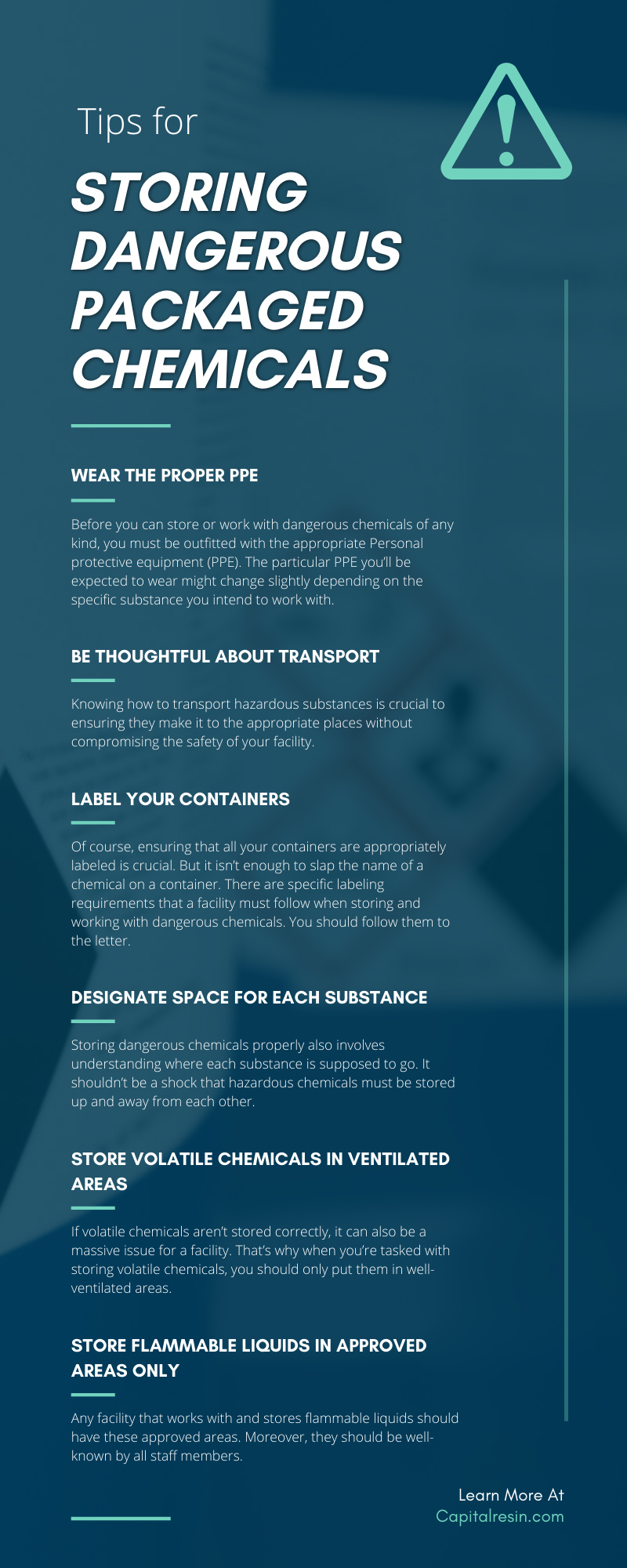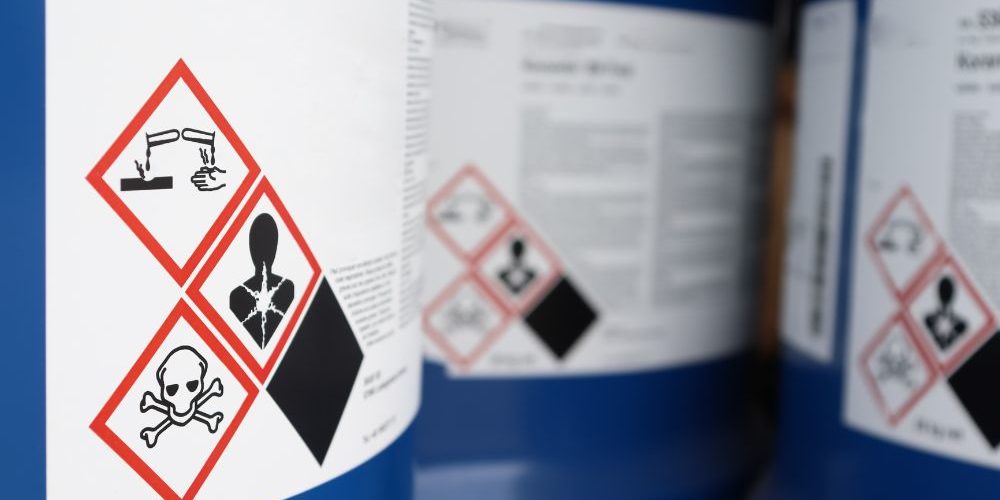Working with dangerous chemicals can be, well, dangerous. After all, these substances are among the most volatile, flammable, and toxic on the planet. But that doesn’t mean we should shy away from working with them. In fact, in many situations, it means the exact opposite. Understanding these substances can help us protect ourselves from them.
Moreover, it can lead us to discover new and exciting applications for them that could help society on a global scale. We can’t hope to get close enough to these chemicals to work with them without knowing how to store, transport, and handle them properly. Fortunately, we’ve compiled this comprehensive guide on how to store dangerous packaged chemicals so that you can educate yourself.
Wear the Proper PPE
Before you can store or work with dangerous chemicals of any kind, you must be outfitted with the appropriate Personal protective equipment (PPE). The particular PPE you’ll be expected to wear might change slightly depending on the specific substance you intend to work with.
But generally speaking, you should have the following things on hand:
- Eye protection
- Face shield
- Maximum skin protection
- Closed-toed shoes
Your PPE might also include aprons, splash shields, ear plugs, and respirators. It all depends on which chemicals you’ll be working with. The idea here is to ensure that your entire body is well-protected.
Be Thoughtful About Transport
After your PPE is sorted, it’s time to discuss how you’ll transport these dangerous chemicals to their proper storage areas. Knowing how to transport hazardous substances is crucial to ensuring they make it to the appropriate places without compromising the safety of your facility.
Luckily, there are a few tips invaluable tips you can use to implement a secure transport of dangerous chemicals every time, including:
- If you notice that a chemical or container is visibly degrading, never try to move it. Report it to your supervisor or site investigator and let them handle it.
- If you’re transporting bottles, place them in secondary, leak-proof containers. Doing so will protect them against hazardous spills and breakage.
- If you’re moving several heavy or oversized containers, use a cart with large wheels that will roll smoothly over most surfaces. Don’t ever try to carry big packages yourself.
- Transport dangerous chemicals during slow times when there aren’t many other people walking around. Avoid transport during breaks, class changes, and lunches.
- Use uncrowded freight elevators when transporting substances to a different floor. Never leave chemicals unattended while in transport.
Following these simple guidelines will ensure your safety and the safety of everyone else in your facility. Plus, it will keep the chemicals you transport secure as you move them to their proper areas.
Label Your Containers
Of course, ensuring that all your containers are appropriately labeled is crucial. But it isn’t enough to slap the name of a chemical on a container. There are specific labeling requirements that a facility must follow when storing and working with dangerous chemicals. You should follow them to the letter.
But to be specific, use clear, legible labels that explain each substance and the characteristics that make it dangerous. This can be done with hazard, flammable, and corrosive stickers. There are also certain types of labels that allow you to fill out more details, such as:
- Name, Address, and Facility Telephone Number
- Signal Words or Hazard Statements
- Precautionary Statements
- Pictograms
Referring to the official OSHA guidelines is helpful here. Essentially, your labels need to be thorough and easy to read. This will come in handy later when it comes time to store each substance in its designated areas.
Designate Space for Each Substance
PPE, proper transport, and thorough labeling are only part of the equation. Storing dangerous chemicals properly also involves understanding where each substance is supposed to go. It shouldn’t be a shock that hazardous chemicals must be stored up and away from each other. They’re dangerous enough on their own.
Putting two of these substances next to each other on a shelf can result in some hazardous reactions. Moreover, if these substances are stored in a climate that’s more likely to cause a reaction, it could spell trouble for the whole facility.
Store Volatile Chemicals in Ventilated Areas
A working knowledge of where each dangerous chemical must be stored is integral. So, let’s explore that further. Hazardous substances are labeled that way because they’re extremely corrosive, toxic, flammable, or volatile. When a chemical is highly volatile, it means that it can readily evaporate, even at room temperature.
If the resulting vapor is toxic and inhaled, it causes severe problems for the person working with the substance. If volatile chemicals aren’t stored correctly, it can also be a massive issue for a facility. That’s why when you’re tasked with storing volatile chemicals, you should only put them in well-ventilated areas.
Store Flammable Liquids in Approved Areas Only
You will likely have to store flammable liquids when working with dangerous chemicals. These types of substances should be handled with care for obvious reasons. Storing them properly is equally important. Thus, when you are tasked with flammable liquids, you should store them in the approved areas of your facility.
Any facility that works with and stores flammable liquids should have these approved areas. Moreover, they should be well-known by all staff members. You can always ask your supervisor if you’re unsure of their location. The most important thing is only to store flammable liquids in the pre-approved areas.
Final Thoughts
In short, storing dangerous chemicals is a job that must be carried out with the utmost caution, care, and attention to proper policy and procedures. But it’s a much easier job when you understand how things like PPE, safe transport, and specifically designated storage spaces play a role in helping you keep your facility and yourself out of harm’s way.
If you need a chemical engineering service to help you safely store dangerous chemicals, Capital Resin Co. has you covered. So, give us a call today. We’ll answer all your questions and ensure you have everything you need to meet the unique needs of your facility.








